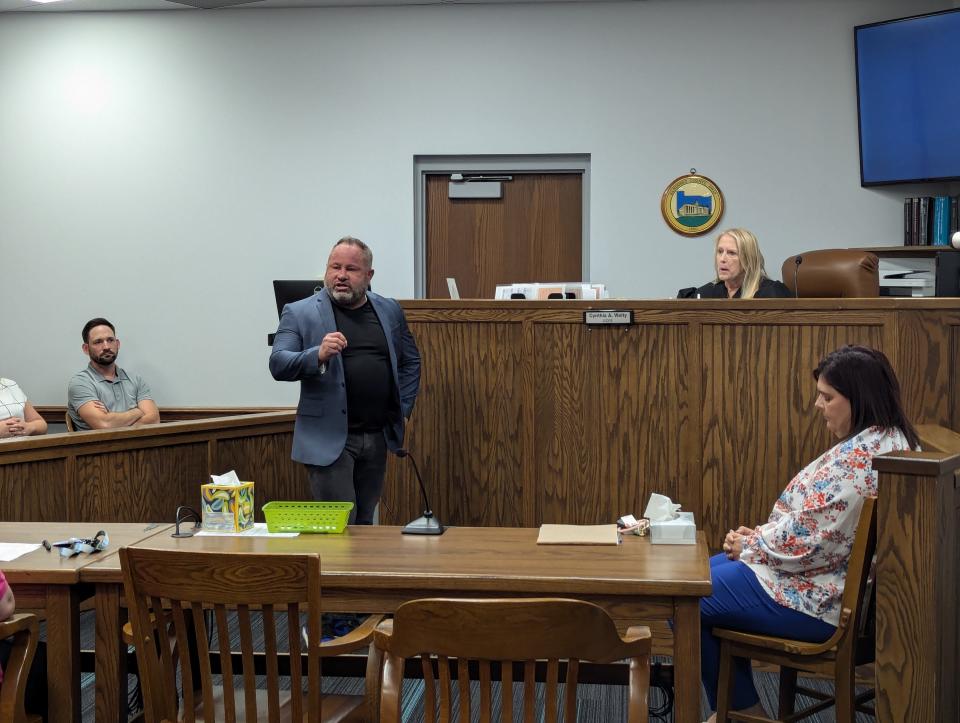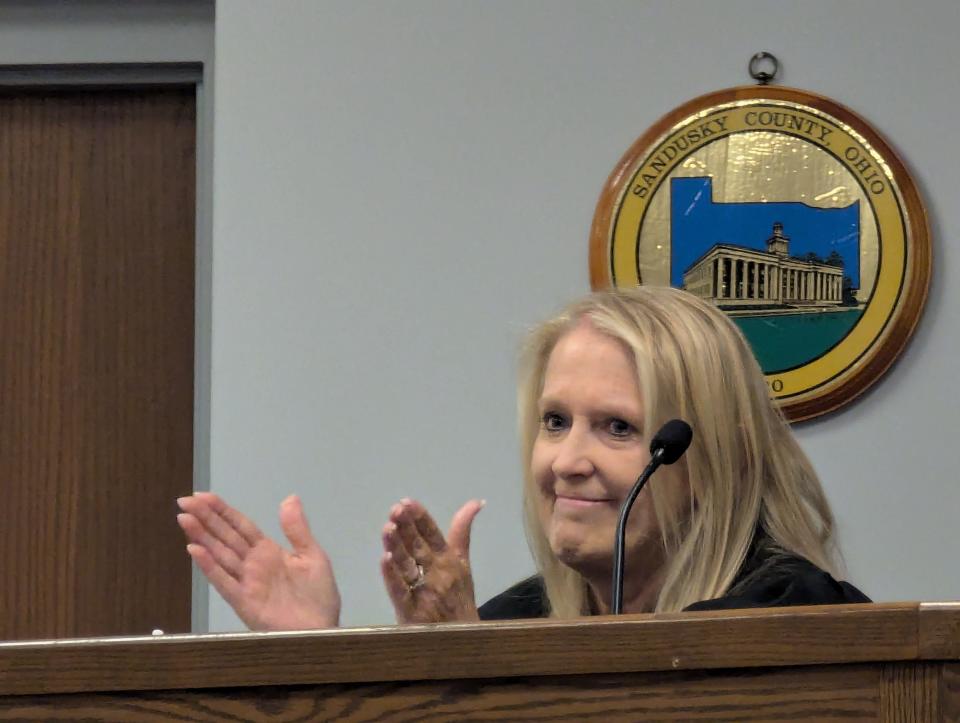Hope Court sends three graduates on journeys toward better lives
CLYDE – Lots of tissues were handed out as family and friends greeted the three tearful new graduates of the Hope Court as they finished their graduation ceremony, moving on to new lives after drug or OVI offences.
The speaker was former Sandusky County Sheriff Kyle Overmyer. He completed prison sentences related to an opioid addiction. He is now a public speaker advocating for living a drug-free life.
“I was the former sheriff of this county. One of the things about this disease of addiction, is it doesn’t discriminate,” Overmyer said. “A lot of people suffer in silence, shame they get incarcerated and they get lost in the system. You all, who are going to graduate today, are the ones that have continued on in this program, are getting a second chance, and we all deserve a second chance.”
He talked about his own challenges and gave the graduates some advice.
“Be proud and stand up tall, because you all deserve it,” Overmyer said. “Recover out loud. You didn’t get here overnight. ... Don’t let the past define you. Let it refine you.”

Graduate Cassandra Steward said the program means a lot to her and wanted to talk about it and how it has helped her get back on her feet.
“I’ve come a long way. I lost the custody of my kids. I’ve lost a lot of friends and family during my addiction and I lost my place to live. I lost everything, so being able to come this far means a lot to me,” Steward said.
“I got custody back of my kids. … I have a stable place to live and I have a job I manage,” she said, wiping away tears. “It’s emotional. It’s not easy.”
Hope Court is part of the participant’s sentence. Court administrator Stacy Dickman had some words for the graduates of the voluntary program.
“I’m just very proud of everyone who has graduated today. It takes a lot of hard work. This is probation, but it is intense probation. They have to report to us. They have to go through other procedures. We have to make sure they are doing things right. And talking to the judge, and us, we help them as much as possible,” Dickman said.
Hope Court graduates have shown signs of chronic substance abuse and receive a reduction in their penalties for taking part in the four-step program. Eligibility requires they live a clean and sober lifestyle and work with the court system on achieving goals in employment, education and the regaining of trust. They also cannot have any other open court cases and may not have had a violent crime conviction sentence in the last five years.
Many Hope Court participants suffered the legal loss of their children, loss of jobs and incarceration.

A few hiccups along the way, but a journey completed
Judge Cynthia Welty said the graduates each hit a low point, but each worked their way out.
“It was not without a few hiccups, but they did it. Yes, not without a few hiccups,” Welty said.
In the past, graduation took about a year, but this one was longer due to a transition of judges.
One graduate was sober 570 days as part of her journey through Hope Court.
The judge said at any point there are usually eight to 12 participants working their way through Hope Court.
“We would like to increase it, but since I’m just, really, getting started, we’re trying to tweak a few things,” Welty said.
The July 1 graduation was the first since the transition of judges and the required program recertification from the Ohio Supreme Court. Welty took the place of Sandusky County Court District One Judge John Kolesar, who started the specialized court in 2010.
Kolesar left the Clyde court in April 2023. Welty was appointed judge by Gov. Mike DeWine on Oct. 16, and will serve the remainder of Kolesar’s unfinished term, needing to run for election in this fall to retain the seat.
“I have a passion for specialized dockets, especially substance abuse, addiction, mental health, and I wanted to make sure we were able to keep it,” Welty said, adding it took extra effort on the part of the graduates because of the judicial transition time.
She has been a nurse and an attorney, with more than 10 years in the combined roles in the area.
“It’s much different from a regular docket. It’s more one-on-one, dealing with the individual participant, and bringing it to their level. Sometimes, when I’m on the bench and they are a defendant, and not a participant, my role is different. They tend to do better when you are on their level,” Welty said. “They are defendants when their case is on-going. But once their case is done and over, and they enter the OVI court of the drug court, they become participants.”
419-332-2674
This article originally appeared on Fremont News-Messenger: Three graduate from Clyde Hope Court on journey toward drug-free lives

